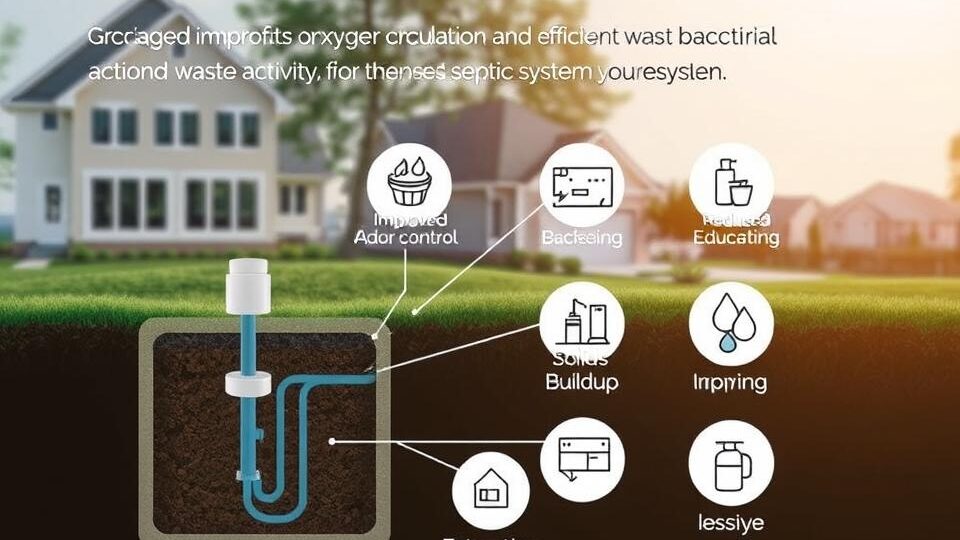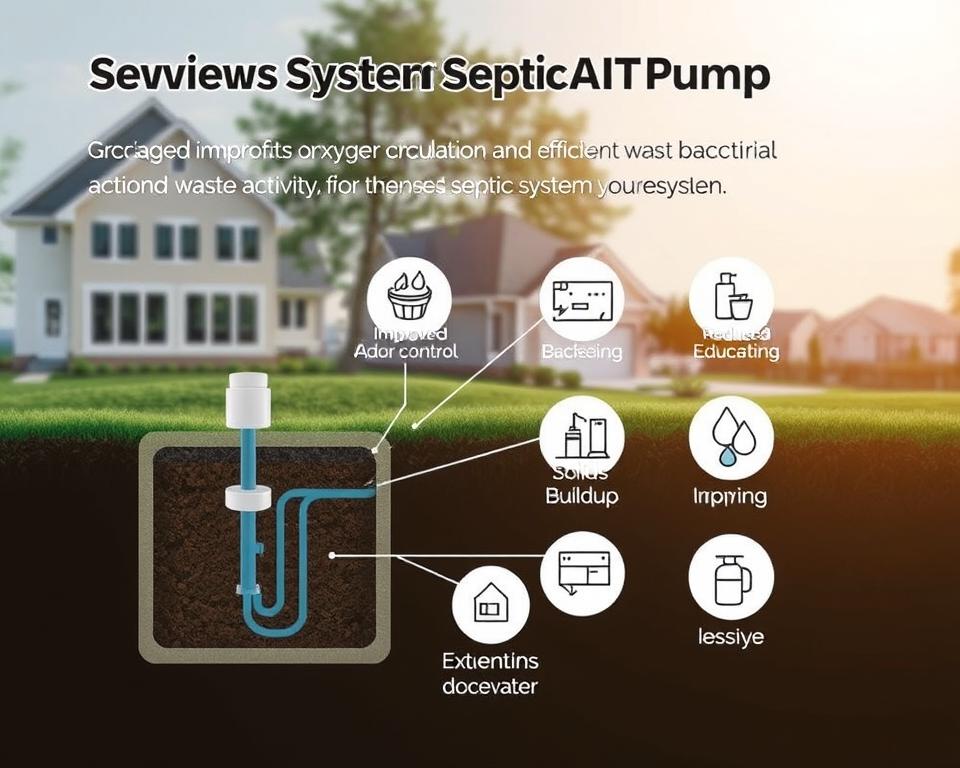
Understanding Additional Services in Septic Tank Cleaning Cost in Clovis
Septic Tank Pump Replacement: Your Guide
Have you considered the consequences of a Septic Tank Pump malfunction? For many, it’s a situation that causes major anxiety and surprise outlays. Realizing the call for prompt replacement is essential in preserving a functional and hygienic Septic system. By sticking with routine check-ups, including rapid repair needs, you extend your system’s life while avoiding expensive emergencies. Companies like All in Sanitation serve a major role in keeping your Septic tank operating smoothly. This guide seeks to give a concise explanation of Septic Tank Pump replacement, including symptoms and service pointers for septic system cleaning.
Core Lessons
- Understanding the role of a Septic Tank Pump is important for homeowners.
- On-time Septic Tank Pump replacement can reduce long-term expenses.
- Routine maintenance and cleaning are key to prolonging the lifespan of your Septic system.
- Professional assistance can successfully tackle Septic system Pump repair and maintenance.
- Spotting first indicators of Pump failure can avoid high repair bills.
Knowing Your Septic System
A Septic system is important for homes without access to town sewer networks. It manages household wastewater securely. The Septic tank is central to this system’s performance, acting as a key component in the process.
The Septic tank takes in sewage, splitting solids from liquids and scum. This segregation is vital for successful wastewater treatment. The cleaned water then flows to the drain field, where it undergoes further filtration by the soil, preserving groundwater.
Grasping how your Septic system operates can extend its life and efficiency. Consistent care is critical for the Septic tank and the system’s overall condition. Homeowners must understand their system’s components to avoid environmental damage and avoid costly repairs.
Septic Tank Basics
A Septic tank is a in-ground, sealed container critical for household waste management systems. It’s important to grasp the Septic tank’s main duty: it handles sewage waste storage by processing it. This setup acts by isolating solids from liquids, promoting basic wastewater treatment and sanitation.
Its operation depends on naturally occurring microorganisms that digest waste. In locales without centralized sewage treatment, Septic tanks are indispensable. They retain sewage long enough for solids to settle, forming sludge. Meanwhile, liquid effluent floats upward, allowing filtration in the drainage field.
Upkeeping a Septic tank in optimal state is crucial for its effectiveness and durability. Periodic upkeep is central to heading off complications like backups and overflows. These problems can bring about pricey restorations and pose environmental hazards. In essence, Septic tanks serve an important function in keeping things clean and safe, especially in rural areas.

Indicators You Need a New Pump
Homeowners should be conscious of signs that their Septic tank may need a new Pump. A clear sign is experiencing foul odors by drains or in the lawn, suggesting a system failure. Facing regular or severe sewage backups in your home needs urgent action to prevent worse issues.
Seeing slow draining drains shows a potential problem. Plumbing fixtures that take a long time to drain might suggest a Pump failure or a clog needing an expert’s evaluation. Additionally, patches of overly lush vegetation in your yard could suggest trouble; this suggests waste leakage, leading to overflow concerns.
To prevent large, pricey repairs, homeowners should handle these signs quickly. Carrying out routine checks and maintenance is key for the Septic system’s top function.
| Signs | Description |
|---|---|
| Foul Odors | Unpleasant smells around drains or yard pointing to system failure. |
| Sewage Backup | Recurring overflows in sinks or toilets suggesting potential Pump issues. |
| Slow Draining Drains | Fixtures draining slowly can mean blockages or Pump malfunction. |
| Lush Vegetation | Areas of overgrowth near the tank pointing to possible overflow. |
When to Change Your Pump
Knowing the frequency for replacing your Septic Pump is vital for a reliable Septic system. It’s sensible to have your system reviewed every three years. A certified technician during these reviews offers feedback into how well your system functions.
Generally, cleaning the Septic tank becomes needed every five years. However, households with high demand or a higher occupancy might need annual service. Proper care of your Septic system thwarts pricey work and extends its lifespan. Professionals in Septic services can craft a maintenance plan that aligns with your needs and the details of your system.
Being proactive with Septic Pump replacements secures your system’s efficient operation and protects your home investment. Consistent checks and care sidestep sudden bills. They support efficient system flow.
Understanding Pump Replacement Costs
The Septic Pump replacement cost differs, affected by many variables. Homeowners should expect paying from $500 to $1,300 for a new Pump. This price spectrum reflects differences in the type of Pump and material needs. It’s crucial to factor in the Pump and Septic tank servicing costs for the placement and mandatory inspections.
Costs can also escalate due to complications within the Septic system or local wage levels. Mandatory restoration, resulting from wear or harm, could raise the total outlay. In calculating financial estimates for Septic services, include charges for routine care, inspections, and any sudden problems since these factors critically aid in maintaining your system’s longevity.
Planning financially for routine Septic service minimizes the surprise of unexpected bills. Advance planning helps owners in efficiently handling expenses connected with the Pump’s replacement and system upkeep.
Steps in Pump Replacement
The Septic Tank Pump replacement kicks off with a deep inspection of the system. This initial check spots any additional issues besides the Pump itself. The faulty Pump is then removed safely and effectively.
Installing the new Pump demands meticulous focus to connection security, ensuring no leaks. Professional Septic services confirm the installation is properly executed, reducing future issues.
The last step is a thorough finish inspection. It checks optimal performance, granting homeowners peace of mind. With professional assistance, the process is smooth, causing minimal disruption.
Septic Tank Pump Installation Best Practices
When performing Septic Pump installation, it’s critical to adhere to best practices. Engaging skilled professionals confirms compliance with local regulations. They competently oversee the installation nuances, avoiding errors common in inexperienced setups.
Keeping to strict Septic service standards is key for cohesive system operation. Selecting proper parts and reliable materials prolongs the Pump’s life and optimizes the Septic system’s efficiency. This detailed care elevates maintenance and overall performance longevity.
- Choose a trusted service provider who is skilled in Septic systems.
- Make certain that all necessary permits and inspections are in place before work kicks off.
- Opt for Pumps that meet the specific requirements of your Septic system.
- Plan a pre-installation inspection to evaluate site conditions.
- Account for the layout and flow of the Septic system during installation.
Following these guidelines leads to a trouble-free install. It also provides a reliable system for efficient waste handling.
Septic Tank Maintenance Tips
Heading off costly problems with your Septic system originates with consistent service. By following simple guidelines, homeowners can preserve their Septic systems’ efficiency. Scheduling periodic reviews is a smart move. It spots and tackle problems before they become major.
It’s also crucial to not allow flushing undesirable things down the drain. Cooking oil, chemicals, and items that don’t break down can damage your system. Decreasing water use during peak times can also improve system handling.
Booking professional cleanings with entities like All in Sanitation is vital for Septic health. Being aware of what you should and shouldn’t do with your Septic tank can significantly extend its lifespan and protect your household environment.
Cleaning Your Septic Tank
Regular Septic tank cleaning is essential for your system’s extended function and efficiency. The process involves sludge removal, inspecting for damage, and confirming everything runs smoothly. These steps are vital to keep your system running smoothly and prevent high restoration costs.
A comprehensive Septic maintenance plan should contain regular inspections and cleanings that fit your specific usage. Homeowners must understand the importance of timely maintenance to prevent issues like backups. Using professionals makes sure the cleaning is complete, promoting a clean living environment.
| Service Type | Frequency | Benefits |
|---|---|---|
| Pumping | Every 3-5 years | Wards off system failure and backups |
| Inspection | Annually | Spots potential issues early |
| Maintenance | As needed | Extends the lifespan of the system |
Investing in consistent Septic tank cleaning saves money and prolongs your system’s life. It ensures smooth waste processing. Starting today safeguards your Septic system’s efficiency for the future.
Selecting the Right Service
Locating a reputable Septic service provider is important when replacing a Septic Tank Pump. Begin by checking their certifications and licenses. Such credentials demonstrate the company’s compliance with industry norms, critical for a successful replacement process.
Reviewing customer reviews is also a key step. Past feedback reveals a lot about service quality, aiding in the filtering process. Opt for companies with a steady track record of quality work and customer support.
Acknowledge recommendations from your community too. Insights from friends and neighbors can point to top-notch Septic services in your vicinity. Always get detailed examples of their satisfactory experiences with these services.
Finally, compare the service scope and cost from various firms. A detailed analysis provides exceptional service and enhances the value of your expenditure. Following these guidelines assures your Septic system receives the premium care it merits.
DIY vs. Professional Service
Homeowners often ask themselves whether to manage Septic issues personally or call in experts. DIY Septic maintenance is attractive for basic fixes and upkeep. For example, monitoring Septic tank levels or snaking lines can be done independently.
Conversely, recognizing when to hire Septic professionals is important for major faults. Heavy-duty repairs, replacing systems, or serious blockages need specific equipment and skills. Without the necessary skills, attempts to solve these problems can result in contamination and large-scale damage.
Figuring out between DIY and professional help calls for evaluating the job’s complexity. Presented below are examples highlighting when DIY is appropriate and when professional Septic services are required:
| Situation | DIY Feasibility | Need for Professional Help |
|---|---|---|
| Routine maintenance (e.g., tank level checks) | Yes | No |
| Minor clogs in drain fields | Yes | No |
| Major Septic Tank Pump failure | No | Yes |
| Complex sewage backflow issues | No | Yes |
| Regular system inspections | Maybe DIY | Yes for thorough checks |
Making informed decisions on these matters ensures safety and efficiency. Selecting well protects as well as the Septic system but also sidesteps unplanned bills.
Final Thoughts
Grasping the workings of your Septic system is essential for its proper care and your home’s well-being. Identifying early indicators of issues prevents expensive repair costs and ensures the system’s integrity. This proactive approach helps the environment and boosts your property value.
To protect your Septic system in optimal condition, emphasize maintenance. This involves regular inspections and scheduled professional Pumping. This modest investment protects your home’s safety and your family’s health. Your Septic system thrives with diligent attention.
Our team at All in Sanitation is dedicated to supplying first-rate Septic care. We bring the knowledge essential to maintain your system running at peak, safeguarding your home investment over time. With our focus on reliable support and steadfastness, we’re here for your Septic maintenance needs.